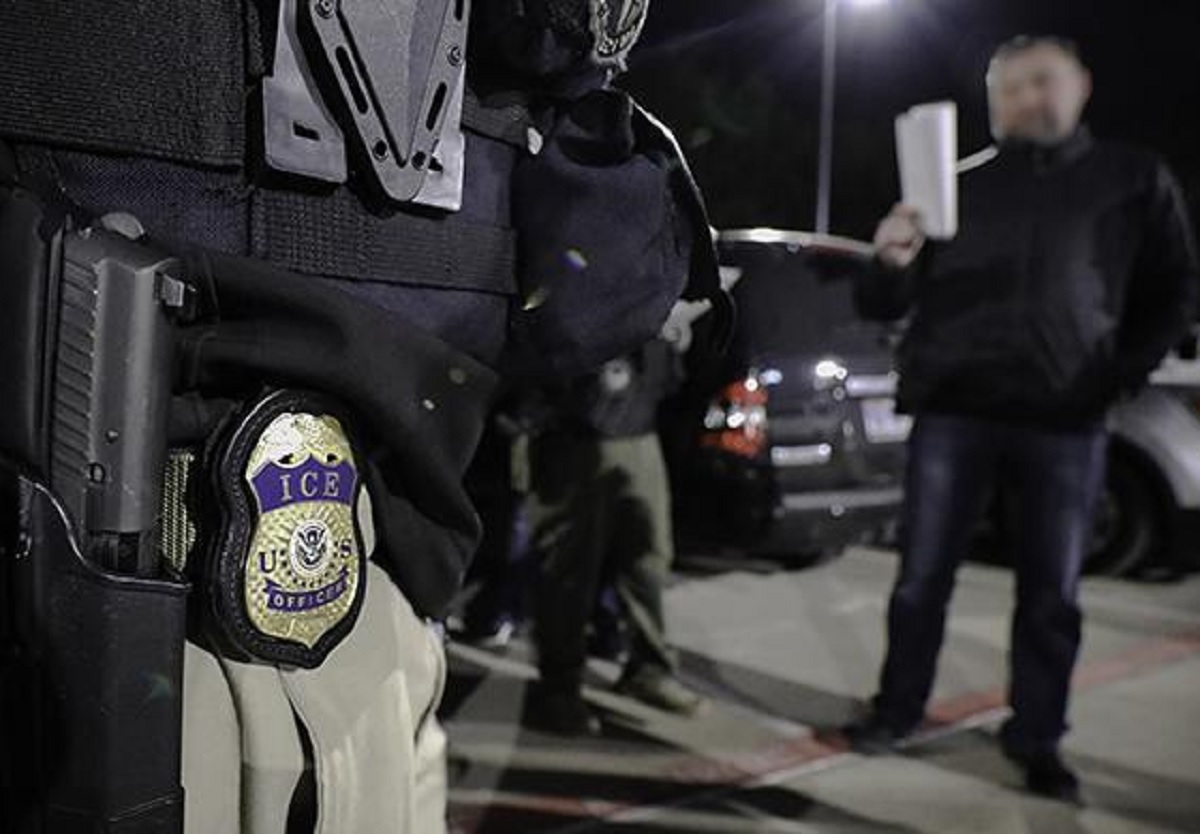The office of Immigration and Customs Enforcement (ICE) and immigration judges will no longer be able to determine stratospheric bonds for detained undocumented immigrants, if they do not take into account the financial conditions of these people, indicates a judicial agreement reached this week.
“ICE must consider the capacity to pay bail and alternative conditions of release”, indicates the agreement signed on 28 March 2022 before Judge Jesus G. Bernal of the California Central District Court, but released Wednesday by the American Civil Liberties Union ( ACLU).
The class action lawsuit was led by Mexican Xochitl Hernández and Honduran César Matías. The settlement of the case Hernandez v. Garland was achieved after six years of litigation.
“ICE will (1) consider the economic situation of the detainee and his financial capacity to pay a bond; (2) will not set bail in an amount greater than that necessary to ensure the detainee’s appearance in all future immigration proceedings, including removal if so ordered,” the agreement states. “And (3) consider whether the detainee can be released under alternative release conditions [ATD], separately or in combination with bail, that are sufficient to mitigate the risk of flight.”
The class action lawsuit filed on April 6, 2016 alleged that the United States Government failed to taking into account the detainees’ ability to pay, nor alternative non-monetary conditions of supervision, taking into account the Immigration and Nationality Act (INA).
“The plaintiffs alleged that the government’s failure to do so violated the United States Constitution and the INA,” the agreement states.
The 11 of November 2016, the Court upheld class action lawsuit and issued a preliminary injunction requiring the government to take into consideration an immigrant’s ability to pay.
Highlights that the new agreement ties in with the immigration detention plan of the Government of President Joe Biden, which seeks to promote alternative options to detention, including surveillance with applications such as SmartLink.
What were the cases
The cases of Hernández and Matías showed how an immigrant could be detained indefinitely because they cannot pay a bond. There are no specific amounts on this payment for freedom, but activists and defenders estimate that the amounts range between $5, 000 and $28,000 dollars on average, although some may be lower or higher, as was the case for the plaintiffs.
Hernandez was booked into the Adelanto Detention Center, in San Bernardino County, in 2012 and had a prior conviction for robbery. As she was facing deportation hearings before a judge, a bond was set at $ 60, 000 dollars in her case.
The immigration judge considered that this amount was the one indicated, since Hernández was a “flight risk”, but the amount to be paid was reduced to $5,000 dollars six months later. The immigrant was able to pay it and was released.
Matías moved to the United States to escape the persecution he suffered due to his sexual orientation in Honduras. He was arrested by ICE at 2012 in Los Angeles, where he worked as a hairdresser and in a clothing factory.
The immigration authorities sent him to the Santa Ana prison, while his asylum application was decided, in addition to setting a $3 bail,000 dollars, which Matías could not pay. He was locked up for four years.
“I am proud to have participated in this lawsuit to help other immigrants,” said Matías. “I hope no one else is forced to stay in detention for years because they can’t pay their bail.”
A great win
The ACLU-led legal battle featured attorneys from the ACLU Foundation of Southern California and pro-bono attorneys from Skadden, Arps, Slate, Meagher & Flom LLP and Mayer Brown LLP.
“The settlement ends the government’s shameful practice of jailing immigrants without regard to their ability to post bail,” said Michael Kaufman, lead attorney for Sullivan. & Cromwell. “The Constitution prohibits incarceration based on poverty, both for citizens and non-citizens.”
Michael Tan, deputy director of the ACLU Immigrants’ Rights Project welcomed the agreement.
“It will help curb our runaway immigration prison system and provides a model for reform across the country,” he considered.
Highlights that during the lawsuit, several organizations and experts filed ‘amicus curiae’ briefs (additional legal arguments) in support of the class action lawsuit, including the American Bar Association and nine former judges of immigration.
“The agreement will guarantee that the conditions of release, be it a monetary bond or some non-monetary alternative, will better fulfill their purpose without punishing those who cannot pay”, said Doug Smith, attorney for the firms Skadden, Arps, Slate, Meagher & Flom LLP and Mayer Brown LLP.
In the middle of the legal fight, in 2019, the Government of President Donald Trump sent notifications to dozens of immigrants of payment of stratospheric fines, of more of half a million dollars, an additional sample of the way in which these non-citizens are persecuted.
